Welcome to this detailed guide on how to write a premise. It’s interesting how attitudes change. When I first began writing I viewed the plot as the most important element of a story. If characters live a static existence, then what’s the point? The more time I invested in improving my writing, I realised the error of my ways. Character is, in fact, king. It’s their conflicts, their struggles, their journeys that glue hands to books and eyes to pages.
But I was wrong again. The element that presides over everything else is something I never paid much attention to, something I rather hoped emerged from my stories rather than weaved it into their fibre. The king of kings, the emperor, the god, is premise.

How To Write A Premise
Yeah, premise. AKA theme, goal, purpose, central idea, thesis … I could go on. None of these words really encapsulate the meaning quite like premise, though.
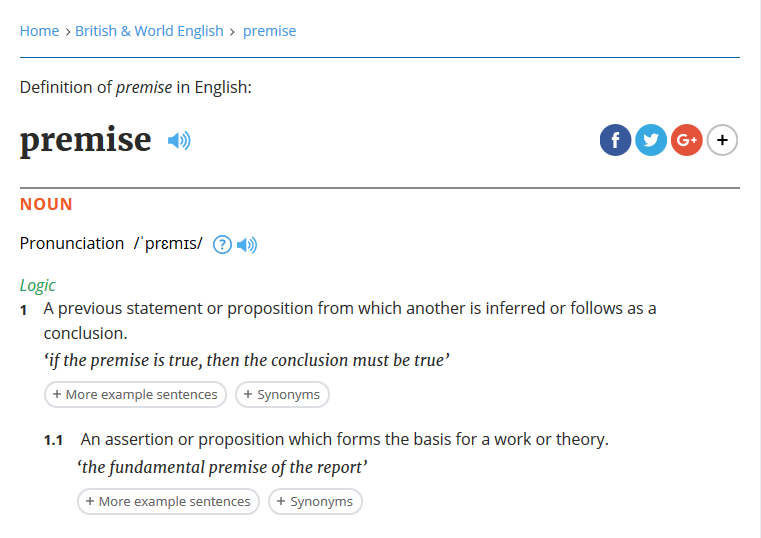
It’s the second definition which I think suits the writer best: an assertion or proposition which forms the basis for a work or theory.
How To Create A Premise
The starting point when it comes to creating a premise is to think of the point you wish your story to make. Ask what the purpose of your story is. Think then about how to prove this through characters, conflict and plot.
Does A Story Need A Premise?
Now, not all stories have to explore a premise or theme. Some stories are just damn good tales. The books that have remained alive in my mind longest, though, have been the ones that have explored a premise, sought to answer it, have tried to bring clarity to a point, such that when you put the book down you feel like you’ve learned something. That’s what I want my writing to do, the kind that can help people, and hopefully, make a difference.
The premise is the sat nav. It will show you the way, lead you to a satisfying conclusion. It will suggest the one and only road the story must follow. Alexandre Dumas summed it up quite nicely:.
“How can you tell what road to take unless you know where you’re going?”
Why Is Premise Important?
A story must have a purpose, a point, a goal— words we established are intertwined with the premise. If there’s no goal, how can a story work sequentially toward a conclusion? How do you know what steps to take to build your way to the end?
The premise, in essence, is the path to the conclusion. It is the argument you want to put across, the conviction you want to make. The plot, the characters… they’re all just vehicles for getting you there. Cannon fodder. You bend and manipulate them so you can state your purpose, make your point, prove your premise.
Still not having it? A premise example or two might help.
Romeo and Juliet
This is a play about love. But it’s no ordinary kind of love. It’s a love so great that it transcends death. They could not be together in the living realm, so chose to be with each other in that of the dead. The premise here is great love defies even death.
Othello

When Othello discovers a handkerchief belonging to Desdemona in Cassio’s home, envy consumes his heart. He kills Desdemona and then himself. The premise here is jealousy destroys itself and the object of its love.
This still isn’t very clear…
Let’s break down premise into its core components.
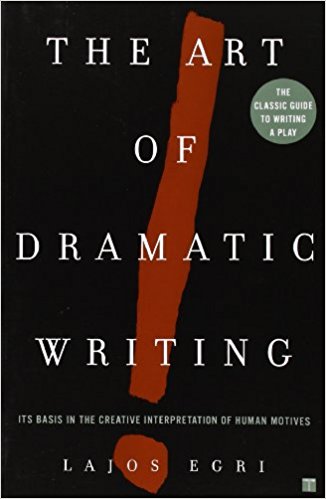
In 1946, the Hungarian playwright Lajos Egri published The Art of Dramatic Writing. His first chapter is on premise. It changed everything for me. It all made so much sense. If you can get a hold of a copy of this book, do it.
“The very first thing you must have is premise. And it must be a premise worded so that anyone can understand it as the author intended it to be understood. An unclear premise is as bad as no premise at all.”
Egri was very much of the view that premise provided direction, a way to get to the conclusion of the story. Characters and plot are the vehicles to get there and the fuel required to propel them to that end is conflict. It is these three elements—character, conflict, conclusion—that Egri says every premise must have.
Let’s clear this up with an example:
Great love defies even death.
The premise of Romeo and Juliet. Can you identify each element in this sentence?
Great love represents character.
Defies suggests conflict.
Death is the conclusion.
Make sense? Let’s try another:
Frugality leads to waste.
Frugality represents character.
Leads to suggests conflict.
Waste suggests the conclusion.
Knowing a premise must have these three ingredients makes things so much easier, don’t you think? And these short, snappy sentences make for a fine thumbnail synopsis for your story. Here are a few other examples. Can you identify each element?
Honesty defeats duplicity.
Dishonesty leads to exposure.
Ill-temper leads to isolation.
Egotism leads to loss of friends.
Bragging leads to humiliation.
Don’t run off in joyous abandon just yet. There’s something else Egri says a premise must have, and that’s conviction.
A premise cannot be a question. It’s a statement. It doesn’t have to be a universal truth, but you, or at least your characters, must wholeheartedly believe it.
“Until [the author] takes sides, there is no [story]. Only when he champions one side of the issue does the premise spring to life.”
So in effect, you could pick a premise such as murdering your dog leads to happiness, and as long as you can establish and prove it in your story, that’s a legitimate premise. Egri was of the view that if you did not wholeheartedly believe in your premise then you would be destined to fail. I don’t share that view as long as you can immerse yourself in the mind of someone who does. It’s certainly easier if it’s something you do believe, though.
Can a story have more than one premise? Egri says no. It ultimately leads to confusion. “Nobody can build a [story] on two premises, or a house on two foundations.” I’m a never say never kind of guy, though, so if you can make it work, go for it.
You may disagree with every word I’ve scribbled here. I entirely understand if that’s the case. The most wonderful thing about writing is there is no right or wrong way to do it. Some people never write with a premise in mind, others reveal it during editing, and some cannot start without. What works for someone may not work for you. All I say is, give it a go. Write a short story beginning with a premise. Build your characters and plot around it and let the premise direct you. Then make up your mind.
More Guides On How To Write A Premise and Literary Theme
Thank you for checking out this guide on how to write a premise and write with a literary theme. Below, you can find links to some other guides you may find useful.
Click here to check out my list of fantasy publishers
Or head here to see a list of over 150 fantasy magazines and journals
And I also have a guide on characterisation you may enjoy.
Head here for more writing tips and guides
Get More Help On Writing A Premise and Literary Themes
If you’d like more help and support with your writing, or perhaps you’re looking for people to share and discuss ideas with, then you may be interested in joining my online writing group.
Here’s what some members have to say about their experiences:
To join, just click the button below!
Thanks for reading this guide on how to write a premise.
- 5 Tips to Help Your Child Learn and Succeed at Primary School - February 26, 2024
- The Advantages Of Using An AI Essay Typer Alternative - February 14, 2024
- Advice On Getting Help With Your Homework - January 26, 2024
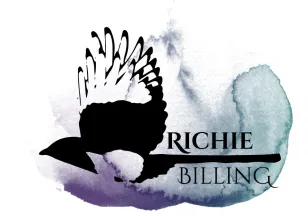
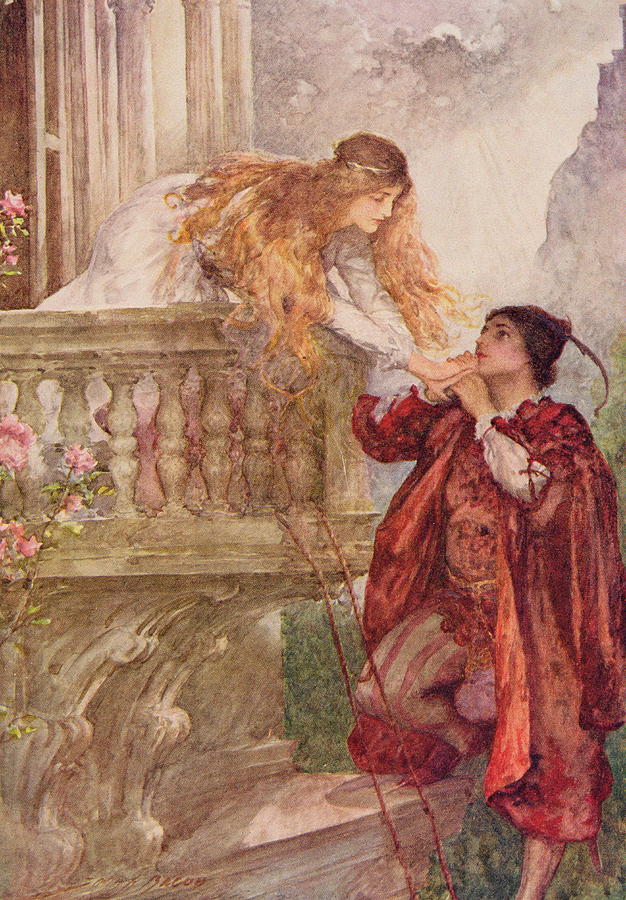





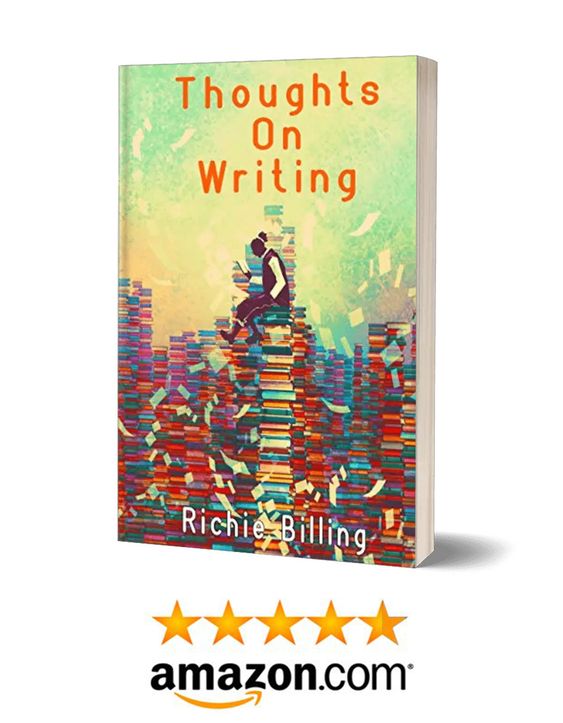
Hi Richie, Excellent piece. Thank you. I’m all for balance too – think it’s one of the hardest elements of writing to get absolutely right! Someone famous once said: “If it sounds like writing, re-write it!” That is so true. I know of a few really first-class writers but they ‘over.do’ it. Pages….of OTT description/dialogue, and sometimes plain ‘telling.’ I must aim for getting the plot, characterisation and premise in tune and can then pat myself on the back.Maybe! (Don’t you just love writing!!) Cheers.
Thank you! I appreciate your comments a lot! I agree! It’s definitely one of the hardest things to master, the precious balance. I’m with you—focus on the most important aspects before indulging in description. I tend to find stories like that don’t have much by way of action
Reblogged this on Ethereal Seals: Dragonsoul and commented:
They say we put a fraction of ourselves inside each character, a story of our lives with each plot element. Who’s to say the premise isn’t a reflection of our souls? Writing may be a more spiritual activity than we believe. Just a thought.
Anyway, here’s an excellent article from a fellow blogger of mine. His article examines premise in a manuscript and how it helps drive characters and plot.
Glad to have you back with us, Rich. Cheers.
Thank you for sharing, and for your lovely words! I appreciate it a lot. I agree with you, writing is certainly a spiritual experience. A way of uncovering life’s mysteries!
I think your concept of the premise as an argument, a logical assertion that needs to be proven by the events of the story, is a sound one. It feels like this concept of the premise anchors it rather firmly in what I tend to think of as the Idea/Meaning/Theme aspect of storytelling (if you subscribe to the MICE model, which advocates that there are 4 pillars of storytelling: Milieu/setting, Ideas, Characters, and Events).
I’ve often heard, and agree, that the ideas/meaning of a story are what’s left when you remove the aspects of the story that anchor it in a specific time/place, and instead focus on the aspects that can be adapted to any circumstance, the way that a story like Hamlet or Macbeth can be adapted to a kingdom, a company, a school, or a family. The idea centers around one individual usurping positions of power, displacing the proper leader from their role.
I think your concept of the premise is definitely a strong technique for evaluating a story idea/draft, recognizing how every story needs that central, simple idea that audiences can understand. No matter how grand or epic the story, there’s always a very understandable central meaning.
I feel like a great example is how Peter Jackson’s Return of the King and Hobbit: Battle of 5 Armies both featured epic battles, but Return of the King succeeded because they understood the central meaning of their story, while Battle of 5 Armies struggled to emulate its predecessor/sequel without fully understanding its own central meaning.
Definitely good food for thought. Thank you for sharing.
Pingback: 4 Things I Learned Writing A Novel – Richie Billing
Pingback: 4 Things I Learned Writing A Novel - Richie Billing
Pingback: Great Examples Of The 5 Senses In Writing - Richie Billing
Pingback: How To Create A Literary Theme | Richie Billing
Pingback: 8 Easy Ways To Improve Your Writing Skills - Richie Billing
Pingback: Tips Membuat Premis: Kunci dan Benang Merah Cerita Keren yang Mulanya Sederhana – Ika Sari